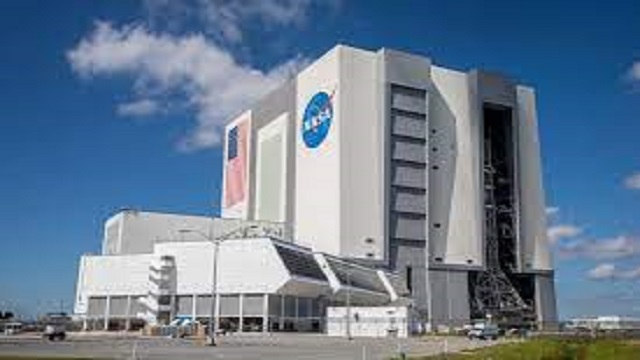NASA again calls off wet dress rehearsal of moon rocket over fuel leak
NASA has for the third time halted Artemis 1 moon rocket’s “wet dress rehearsal” – this time over fuel leak.
Wet dress rehearsal is an opportunity to refine the countdown procedures and validate critical models and software interfaces.
The test, earlier scheduled for April 1-3, was stopped prior to tanking, due to loss of ability to pressurise the mobile launcher using two fans. It was then shifted to April 12 and April 14.
On April 14, Artemis 1 team members observed a liquid hydrogen (LH2) leak on the tail service mast umbilical, which is located at the base of the mobile launcher and connects to the rocket’s core stage, officials said in a statement. LH2 is one of Space Launch System rocket’s two propellants, along with liquid oxygen (LOX).
“The leak was discovered during liquid hydrogen loading operations and prevented the team from completing the test,” it added.
The mission engineers had last identified a helium check valve – that allows liquid or gas to flow in a particular direction and prevents backflow – that was not functioning. Helium is used for several different operations, including purging the engine, or clearing the lines, prior to loading propellants during tanking, as well as draining propellant.
When teams paused propellant loading, the rocket’s core stage liquid oxygen tank was about 49 per cent filled and the LH2 tank had been loaded to about 5 per cent capacity prior to the hydrogen leak.
While the core stage LH2 tank will be kept at about 5 per cent and the core stage LOX loading remains stopped, with the teams working to drain propellant from the rocket.
“The team will not conduct the terminal countdown activities today as planned and will assess next steps after today’s operations,” Jeremy Parsons, deputy manager of NASA’s Exploration Ground Systems team at KSC, said via Twitter.
The test is the culmination of months of assembly and testing for SLS and Orion, as well as preparations by launch control and engineering teams, and set the stage for the first Artemis launch.
Artemis 1 is currently scheduled to launch no earlier than late May 2022.
The uncrewed Artemis I mission is the first flight of the SLS rocket and Orion spacecraft together. Future missions will send people to work in lunar orbit and on the Moon’s surface.
With the Artemis missions, NASA will land the first woman and the first person of colour on the Moon and establish long-term exploration in preparation for missions to Mars. SLS and Orion, along with the commercial human landing system and the Gateway that will orbit the Moon, are NASA’s backbone for deep space exploration.

